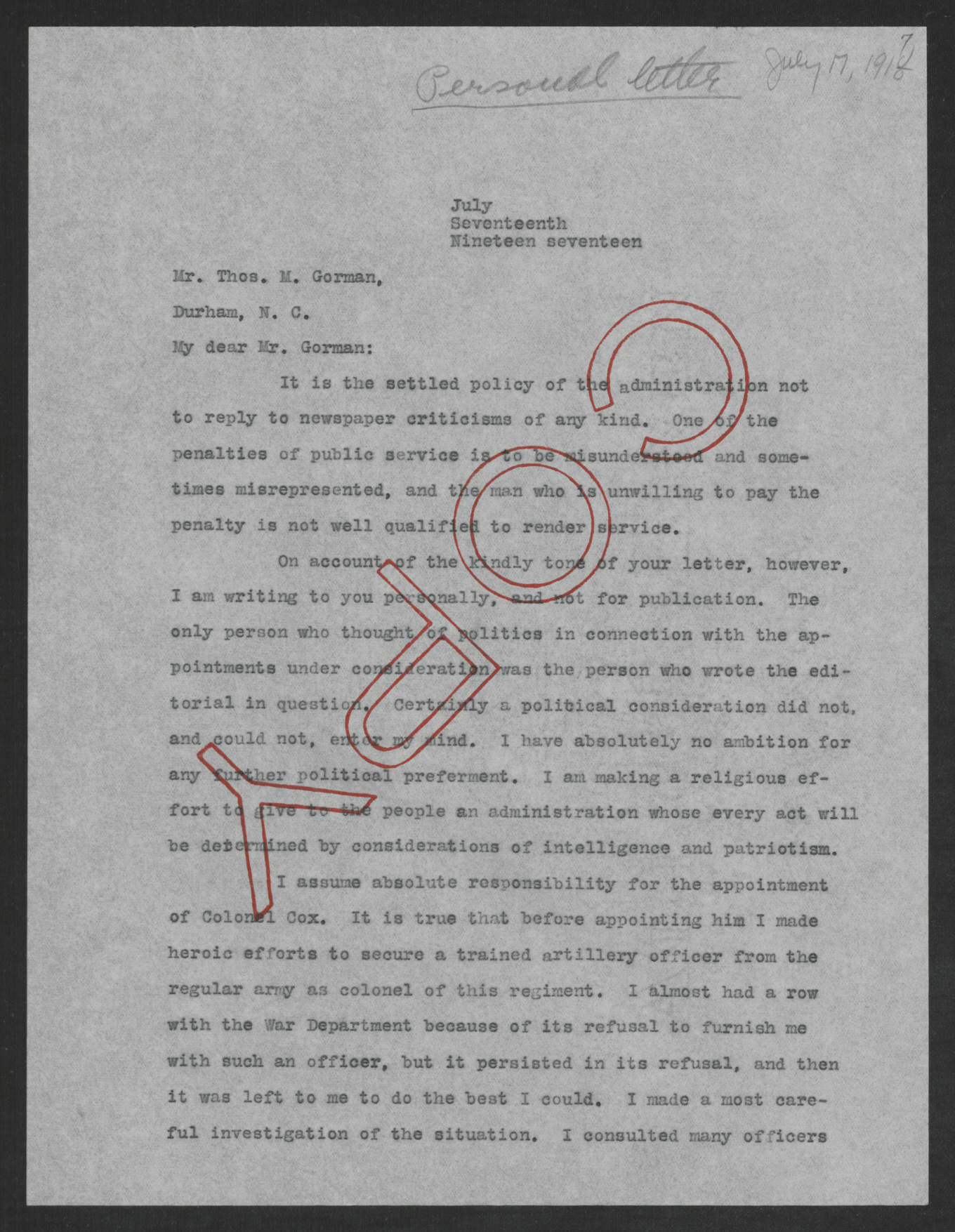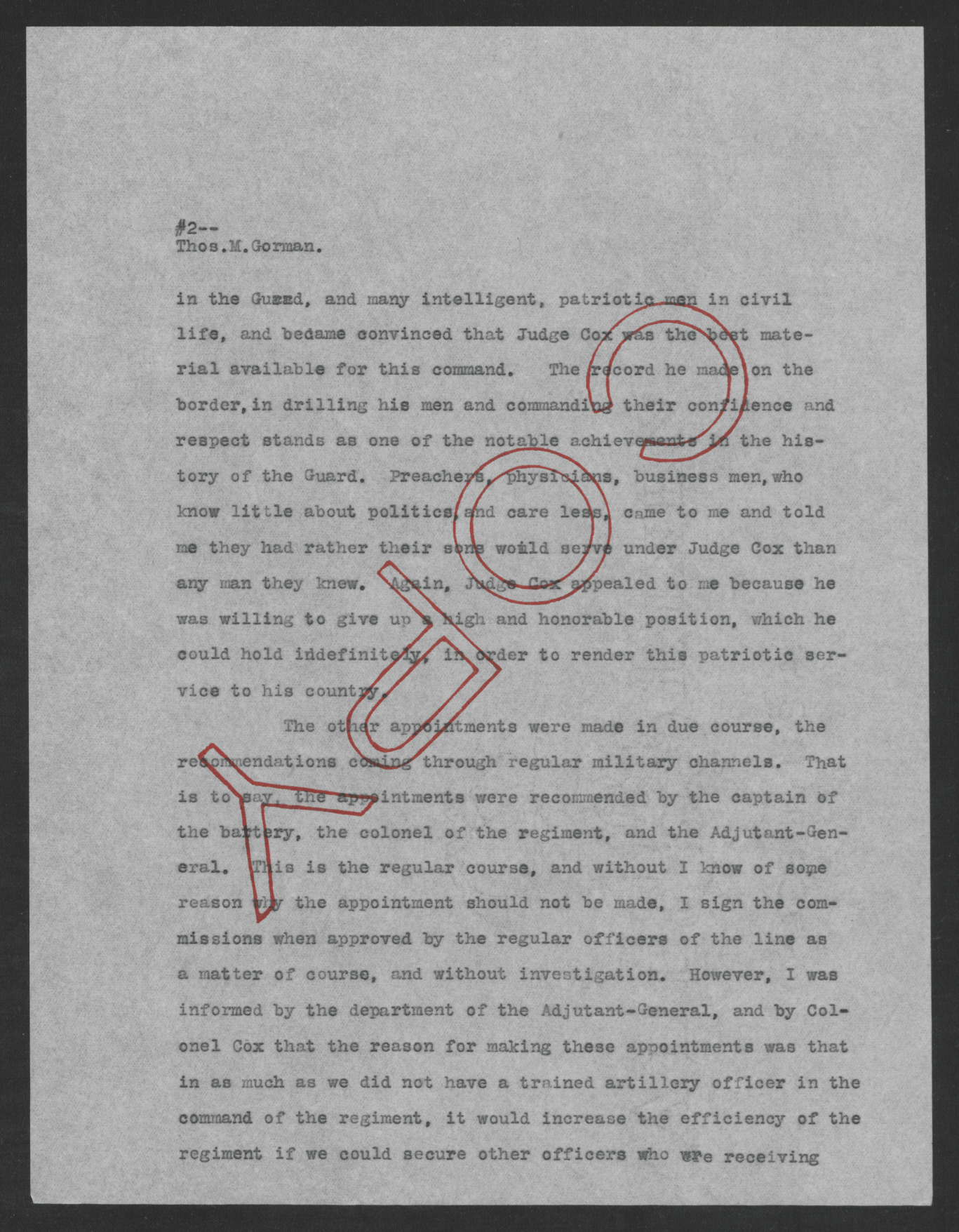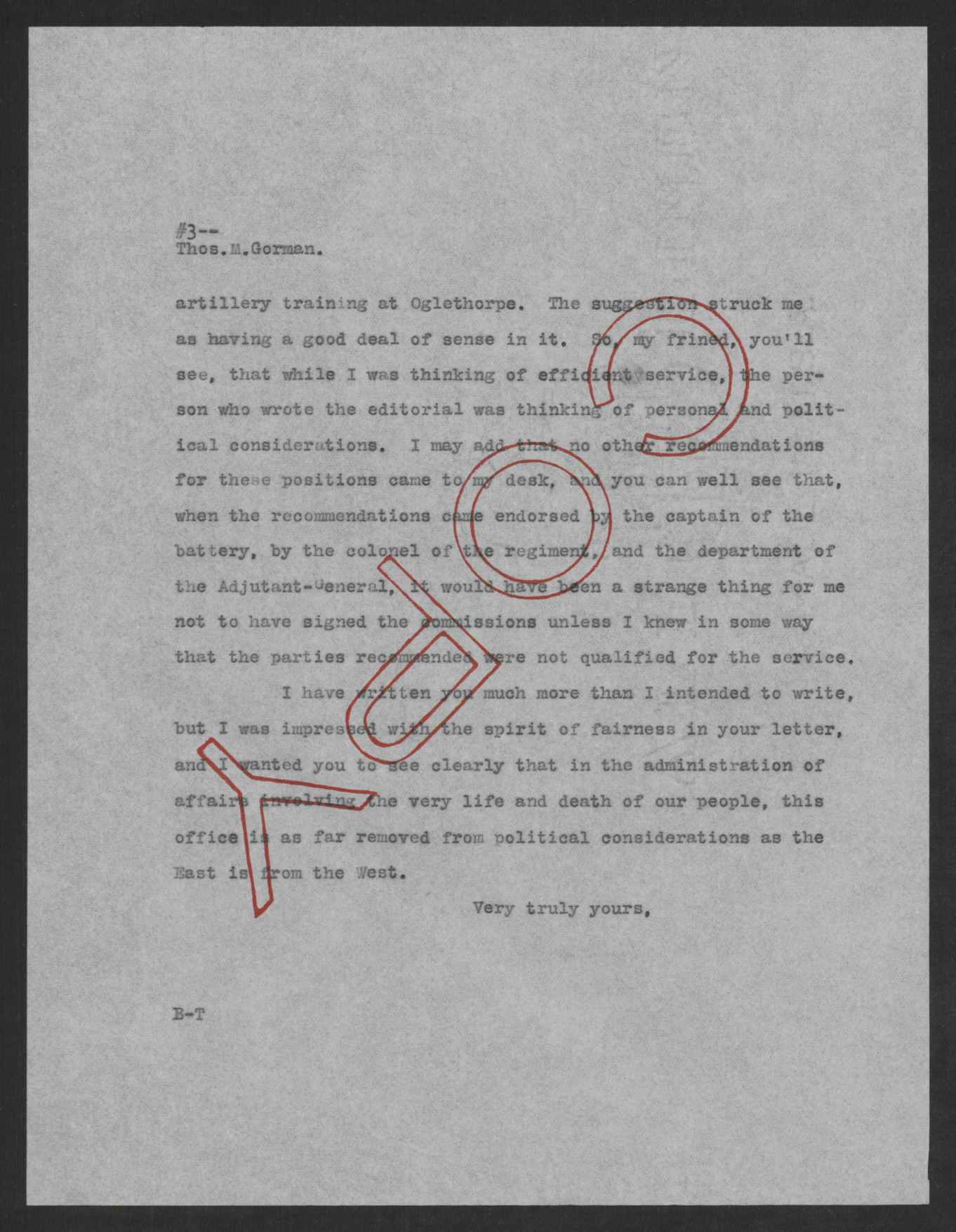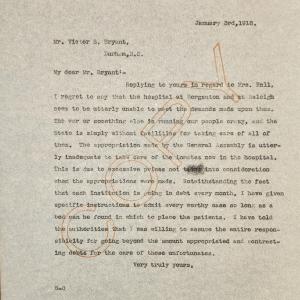<Personal letter July 17, 1917>
July
Seventeenth
Nineteen seventeen
Mr. Thos. M. Gorman,
Durham, N.C.
My dear Mr. Gorman:
It is the settled policy of the administration not to reply to newspaper criticisms of any kind. One of the penalties of public service is to be misunderstood and sometimes misrepresented, and the man who is unwilling to pay the penalty is not well qualified to render service.
On account of the kindly tone of your letter, however, I am writing to you personally, and not for publication. The only person who thought of politics in connection with the appointments under consideration was the person who wrote the editorial in question. Certainly a political consideration did not, and could not, enter my mind. I have absolutely no ambition for any further political preferment. I am making a religious effort to give to the people an administration whose every act will be determined by considerations of intelligence and patriotism.
I assume absolute responsibility for the appointment of Colonel Cox. It is true that before appointing him I made heroic efforts to secure a trained artillery officer from the regular army as colonel of this regiment. I almost had a row with the War Department because of its refusal to furnish me with such an officer, but it persisted in its refusal, and then it was left to me to do the best I could. I made a most careful investigation of the situation. I consulted many officers in the Guard, and many intelligent, patriotic men in civil life, and became convinced that Judge Cox was the best material available for this command. The record he made on the border, in drilling his men and commanding their confidence and respect stands as one of the notable achievements in the history of the Guard. Preachers, physicians, business men, who know little about politics, and care less, came to me and told me they had rather their sons would serve under Judge Cox than any man they knew. Again, Judge Cox appealed to me because he was willing to give up a high and honorable position, which he could hold indefinitely, in order to render this patriotic service to his country.
The other appointments were made in due course, the recommendations coming through regular military channels. That is to say, the appointments were recommended by the captain of the battery, the colonel of the regiment, and the Adjutant-General. This is the regular course, and without I know of some reason why the appointment should not be made, I sign the commissions when approved by the regular officers of the line as a matter of course, and without investigation. However, I was informed by the department of the Adjutant-General, and by Colonel Cox that the reason for making these appointments was that in as much as we did not have a trained artillery officer in the command of the regiment, it would increase the efficiency of the regiment if we could secure other officers who are receiving artillery training at Oglethorpe. The suggestion struck me as having a good deal of sense in it. So, my frined, you’ll see, that while I was thinking of efficient service, the person who wrote the editorial was thinking of personal and political considerations. I may add that no other recommendations for these positions came to my desk, and you can well see that, when the recommendations came endorsed by the captain of the battery, by the colonel of the regiment, and the department of the Adjutant-General, it would have been a strange thing for me not to have signed the commissions unless I knew in some way that the parties recommended were not qualified for the service.
I have written you much more than I intended to write, but I was impressed with the spirit of fairness in your letter, and I wanted you to see clearly that in the administration of affairs involving the very life and death of our people, this office is as far removed from political considerations as the East is from the West.
Very truly yours,
[unsigned]
B-T
Date:
Sender:
Recipient:
Related People:
Repository:
Collection:
Places:
»» »» Georgia







